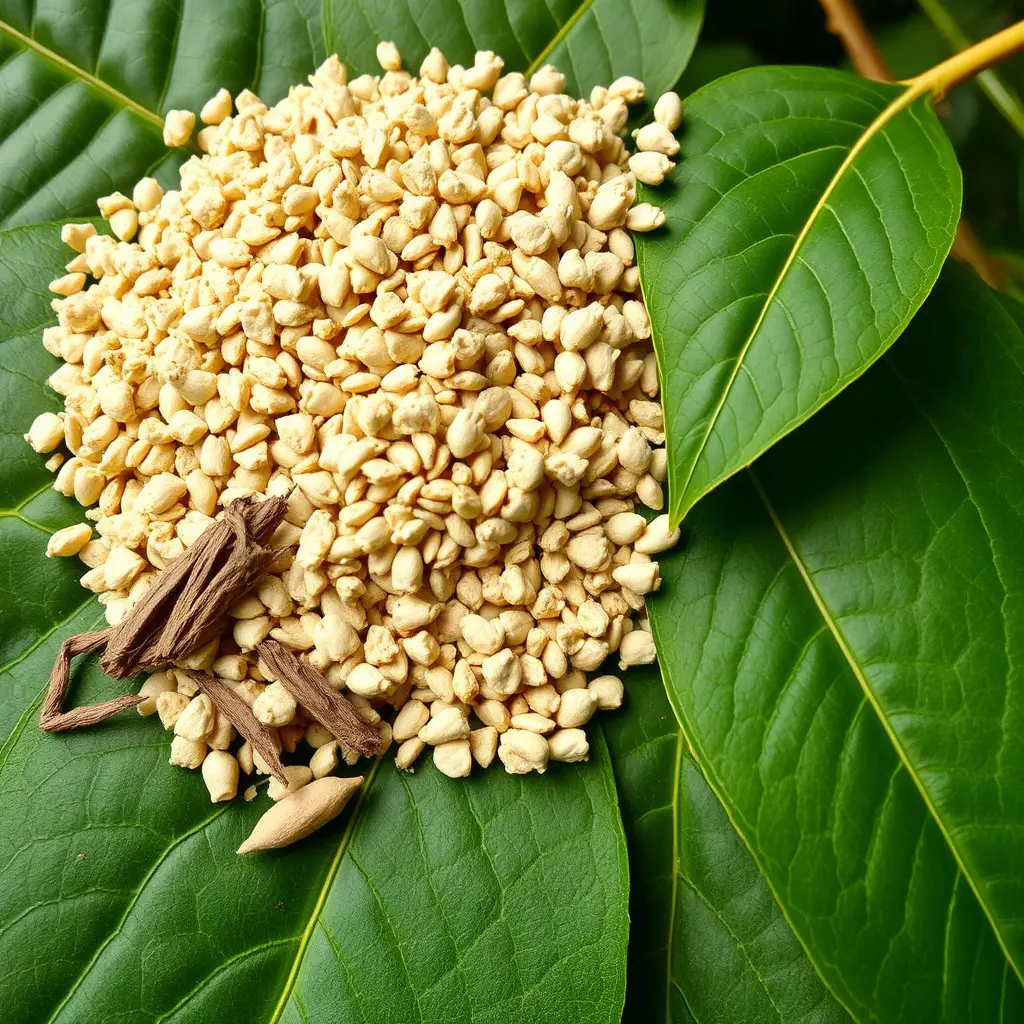Chronic inflammation, linked to conditions like heart disease and arthritis, can be harmful. Kratom supplements and blue lotus smoke offer natural anti-inflammatory solutions. Key compounds in kratom and blue lotus interact with opioid receptors and inhibit enzymes involved in the inflammatory response. The blue lotus smoke drug test helps consumers make informed decisions about these natural remedies while ensuring safety through standardized testing protocols for Nelumbus nucifera extracts.
“Unraveling the power of nature’s remedies, this article explores kratom supplements as a potential ally in inflammation reduction. While chronic inflammation wreaks havoc on our health, natural alternatives like kratom have garnered attention for their anti-inflammatory properties. We delve into the science behind its effectiveness and uncover the unique role of Blue Lotus Smoke in mitigating inflammation. Additionally, we consider the implications for drug testing, especially as interest in this herbal supplement grows. Understanding these aspects can shed light on natural ways to support overall well-being.”
- Understanding Inflammation and Its Impact on Health
- Kratom as a Natural Anti-Inflammatory Agent: Science Behind It
- Blue Lotus Smoke and Its Role in Reducing Inflammation: Considerations for Drug Testing
Understanding Inflammation and Its Impact on Health

Inflammation is a natural response from our bodies’ immune system, acting as a protective mechanism to fight off potential threats like pathogens and injuries. However, when inflammation becomes chronic or excessive, it can have detrimental effects on overall health. Chronic inflammation has been linked to various conditions such as heart disease, diabetes, arthritis, and even cognitive decline. It’s like a low-grade fire burning within our bodies that, over time, can damage tissues and disrupt normal bodily functions.
Understanding this complex process is crucial, especially when considering natural remedies like kratom supplements for inflammation reduction. For instance, the blue lotus smoke drug test, which measures the presence of specific compounds in the body, could potentially offer insights into how kratom’s active ingredients interact with our systems. By recognizing the impact of inflammation and its role in various health issues, individuals can make informed decisions about incorporating natural approaches to support their well-being.
Kratom as a Natural Anti-Inflammatory Agent: Science Behind It

Kratom, derived from the tropical plant Mitragyna speciosa, has gained attention for its potential anti-inflammatory properties. Scientific research suggests that kratom contains various bioactive compounds, including alkaloids and flavonoids, which play a crucial role in reducing inflammation. One of these powerful compounds is mitragynine, known for its ability to interact with opioid receptors in the body, modulating pain perception and potentially lowering inflammation.
The science behind kratom’s anti-inflammatory effects is multi-faceted. Studies indicate that it can inhibit certain enzymes involved in the inflammatory response, such as cyclooxygenase (COX), which is responsible for producing prostaglandins, known inflammatory mediators. Additionally, kratom may help regulate the immune system, balancing the production of pro- and anti-inflammatory cytokines, thus reducing overall inflammation in the body. This natural approach to inflammation reduction has sparked interest in those seeking alternative remedies, especially when considering a drug test, as some, like blue lotus smoke, are explored for their potential to avoid false positives.
Blue Lotus Smoke and Its Role in Reducing Inflammation: Considerations for Drug Testing

Blue Lotus Smoke, derived from the roots of the Nelumbus nucifera (blue lotus) plant, has gained attention for its potential anti-inflammatory properties. Historically used in traditional medicine practices, this natural extract is now being explored as a complementary approach to reduce inflammation. Studies suggest that blue lotus smoke may inhibit certain enzymes involved in the inflammatory response, offering a promising alternative for those seeking relief from chronic inflammation without relying solely on pharmaceutical interventions.
When considering the role of blue lotus smoke in inflammation reduction, drug testing plays a crucial part in ensuring safety and quality. As with any supplement, proper testing methods are essential to verify the presence (or absence) of active compounds and ensure they meet purity standards. This is particularly important for blue lotus smoke due to its unique composition and potential interactions with other substances. Standardized testing protocols for Nelumbus nucifera extracts can help consumers make informed decisions, ensuring they receive a product that effectively supports inflammation reduction while adhering to safety guidelines.
Kratom, particularly Blue Lotus Smoke, emerges as a promising natural alternative for managing inflammation. The scientific evidence supporting its anti-inflammatory properties is growing, offering hope for those seeking complementary treatments. However, further research and consideration of regulatory frameworks, like drug testing methods for Blue Lotus Smoke, are essential to ensure safety and accessibility. By understanding the science behind kratom’s effects and navigating the current landscape, individuals can make informed decisions regarding their health and well-being.






